Issue 88 : 22 August 2021
Talofa Lava, Kia Orana, Malo E Leilei, Tena Koutou, Hello ...
... and welcome to the latest issue of “For The Love Of The Game”, the official e-zine of the New Zealand Amateur Sport Association Inc., founded in 2017.
If you have any feedback on this issue, ideas for future articles, or would like to contact the Editor, please click here. And, you are invited to forward the e-zine to others you know, who may be interested in reading it. An archive of earlier editions of the e-zine can be found here. For those who follow Twitter, you can also follow the Association, @AmateurSportNZ.
If you are interested in applying for membership of the Association, please click here.
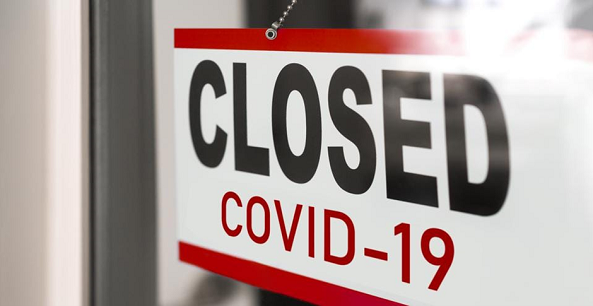
The Association recognises that our current COVID circumstances have created many challenges (and disappointments) for those involved in community sport throughout New Zealand. In appreciating that amateur sport is important to both our physical and mental health, until such time as sport in our communities can resume we hope you are able to stay connected in some way with those who share your sporting interests.
“D-Day” – Historic Wave Of Sport Club Dissolutions ...
192 incorporated sport entities were gazetted as dissolved by the Registrar of Incorporated Societies on 19 August, just under one-third of a record 671 dissolutions made. The number of dissolutions is the largest single tally since the Association began to monitor dissolution statistics from five years ago. As many clubs will be unaware, involuntary dissolution (for non-compliance) exposes clubs and their officers to unintended legal risks and consequences.
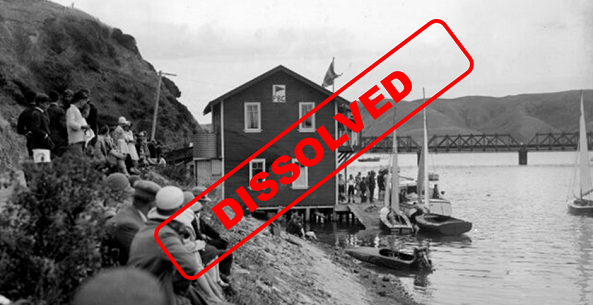
(A record number of club dissolutions were made for non-compliance with the Act)
Thursday’s dissolutions covered 44 different sporting codes, with the top-five codes, (by number of clubs dissolved), being: lawn bowls; equestrian sports; martial arts; swimming and sailing.
The Association is currently in the process of contacting all dissolved clubs to determine: a. if they are aware that they have been dissolved; and b. if they are still active. Among comments received from dissolved clubs contacted by the Association so far are: “no-one was aware of this”; “this is the first I have heard about this”; and “I wasn't aware of this nor received any communication as to why this would be”. This coming week, the Association intends to prepare a Media Release providing further information on the impact of “D-Day” on amateur sport.
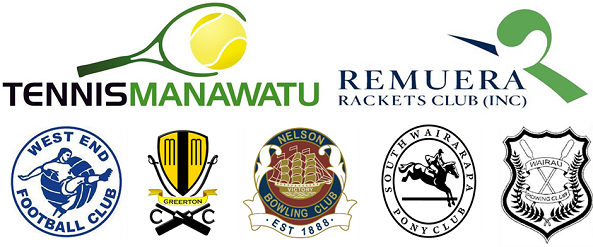
(44 different sporting codes and 192 sport entities were affected, including the above)
2021 National Sport Club Survey (NSCS) Underway ...
The NSCS is a partnership between the Sport Performance Research Institute New Zealand (SPRINZ) at Auckland University of Technology (AUT) and the New Zealand Amateur Sport Association (NZASA). The purpose of the NSCS is to understand the management and operations of New Zealand’s sport clubs. The benefit of this research is a better understanding of sport clubs that can be used to improve the sport experience of New Zealanders. This is the fourth year of the survey, which was initiated by the Association in 2018.
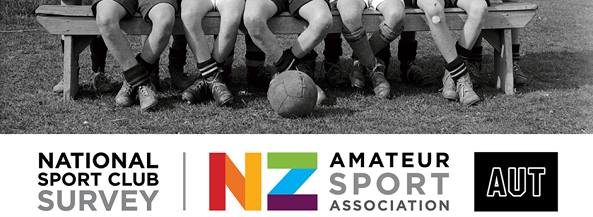
(The 2021 survey is open from 19 August until 31 August)
The Association warmly thanks the survey’s principal sponsors: Dynasty Sport; Forsyth Barr and Pinnacle Corporation, without whose financial support, the survey would not be possible.
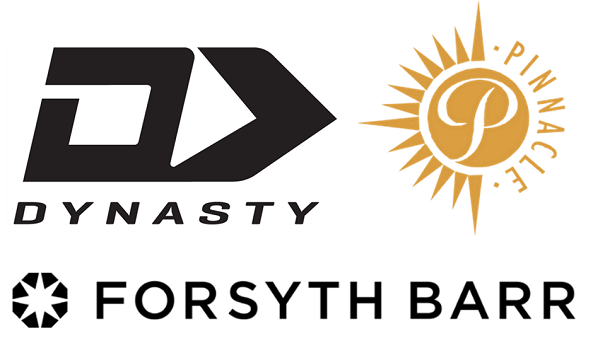
“Apathy” Causes Curtain To Fall On Sassenachs RFC ...
Among the clubs voluntarily dissolved by the Registrar last week was the Sassenachs RFC, based in Dunedin. Initially incorporated in 1973, the club's members (estimated to be in excess of 400 at the time of dissolution) were rugby union people who had given great service to the game either as players or administrators, primarily in Otago.
In recent years the club had provided support and opportunities to many young players especially in Otago’s country areas. The club is thought to have been the initial idea of William J. (Bill) Hogg, owner of the "New Club Hotel" on Maclaggan Street in Dunedin, who was associated with the Otago University RFC in the late 1950’s.
The principal objects of the club were to promote and play "Rugby Union Football" and promote sporting, social and cultural functions, activities and recreations for the purpose of fostering and advancing the interests of the game.
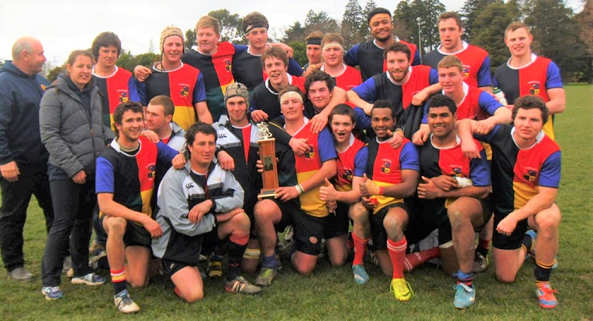
(The Sassenachs Rugby Football Club's Under 20 Team Of 2015)
Eion Willis was the President of the Club from 2008 until it’s dissolution. Now living in Wanaka, Eion told the Association that the biggest problem which led to the club’s demise was “apathy”, in particular a lack of willingness from members to take on administrative roles essential to the ongoing operation of the club as an incorporated society. A recent appeal to the membership to step-up to assist, garnered only seven responses; three of which suggesting that the club be "wound-up". With natural attrition reducing the Committee’s membership to only five, there was no alternative left but to bring down the curtain after 48 years of supporting community rugby.
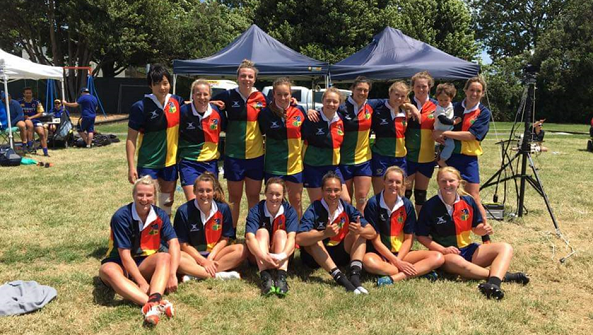
(The Sassenachs Rugby Football Club's Women’s Sevens Team In 2016)
Eion notes that the issues facing the Sassenachs club in attracting volunteer administrators are not limited to the sport of Rugby Union, with the Association also observing that the passage of the Incorporated Societies Bill currently before Parliament is likely to further disincentivise volunteers to undertake administrative roles in clubs across all sporting codes.
Viewpoint : How Can We Improve Mental Health In Elite Sport? ...
A survey by the U.K.’s Mental Health Foundation reported that “pressure to succeed” was for 60% of 18 to 24 year olds, a major cause of stress. Youth who’ve embarked on professional careers will often hear the well-worn trope that “pressure makes diamonds” and feel obliged to demonstrate their commitment to their selected profession by working long hours with short deadlines, combined with high performance expectations. Elite sport creates similar demands.
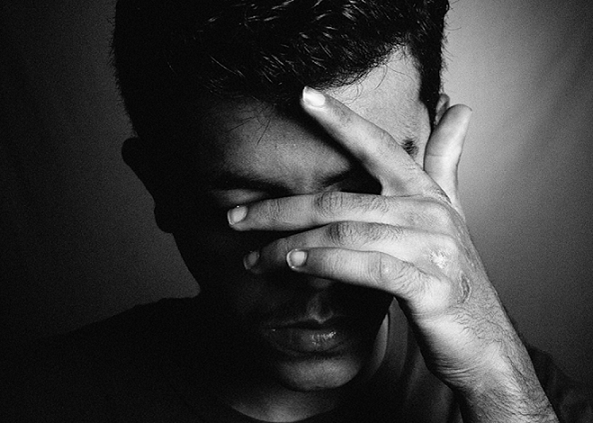
(60% of 18 to 24 year-olds cite "pressure to succeed" as a major cause of stress)
“Sport” (in an amateur sense), is an effective antidote for mental ill-health. It generally encourages positive community interaction, good-natured social rivalry and an opportunity for people from all walks of life to come together in support of a common recreational interest. We must do more to protect our talented sporting youth from the commercial and nationalistic drumbeat which has the potential to curtail their full potential in becoming all-round contributors to society. You can read more here.
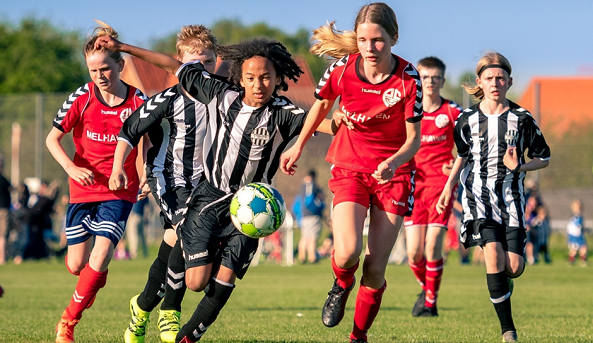
(Youth athletes need to be protected from the negative effects of pressure to perform)
COVID Cancels “Winter Tournament Week” For Secondary Schools ...
School Sport NZ has cancelled all sanctioned events on its calendar through to Monday 6th September 2021. This includes all events scheduled in Winter Tournament Week. The cancellation will affect the regional qualification and national championships for many secondary school winter sports, as well as the age-group tournaments and sport development opportunities ordinarily available to teenagers of all ages in Winter Tournament Week.

The viability of future events on the School Sport NZ's calendar will be reviewed on Wednesday 1st September, or as appropriate in accordance with any changes to alert level protocols.
Lack Of Sport Contributes To Mental Ill-Health In Adolescents ...
A recent report from the University of Wisconsin’s "Madison School of Medicine and Public Health" notes that among youth athletes the cancellation of sports is accompanied by significant mental health consequences. In a survey of over 13,000 U.S. adolescent athletes during the COVID-19 restrictions in May 2020, 40% reported moderate to severe depression symptoms and 37% reported moderate to severe anxiety.

(Growing mental ill-health is a side-effect of pandemic-induced social isolation)
The survey found that adolescent athletes from areas with the highest levels of poverty reported the lowest physical activity levels and the highest levels of depression and anxiety. As many have now observed, a side-effect of protecting our physical well-being is a deterioration of our mental wellness. The University of Wisconsin's researchers have made a number of recommendations for the consideration of public officials, which can be read here.
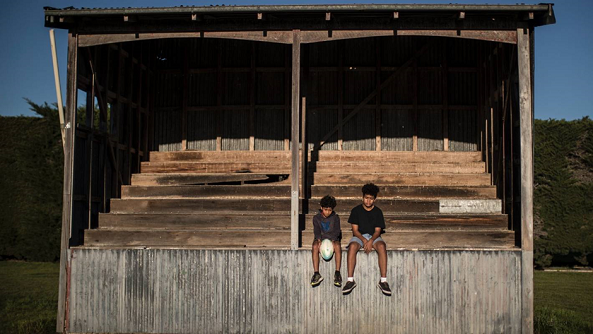
(Depression and anxiety are by-products of a lack of sport for adolescents)
Enhancing Wellness Through Being Physically Active ...
The Association is pleased to lend its support to a one-day seminar being held on Thursday, 23 September at the Mornington Golf Club, in Berhampore, Wellington focusing on how being physically active helps mental well-being.
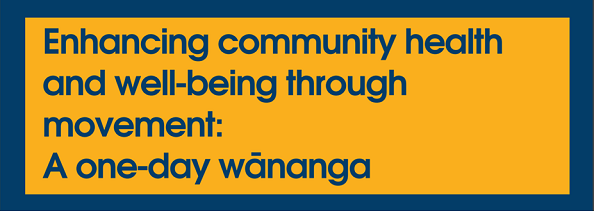
If you’d like to know more about this opportunity to the connection between movement and the health and well-being of our whanau and communities, contact Association Board Member, Ray Tuffin, by clicking here, or you can click here to download the event flyer.
From The Archives ...
NEW ZEALAND TIMES, VOLUME XXVIII, ISSUE 5811, 31 JANUARY 1906, PAGE 4
LADY BOWLERS
“In the development of sport, New Zealand has in more than one direction proved her ability to anticipate other countries; and a minor example of this freedom from convention was noted by us recently being the extension of the game of bowls to Wellington ladies.
As far as can be ascertained, this is the first occasion in the history of the game that bowls has even been considered a diversion for the other sex. To the Kelburne club is due the honour of placing the facilities for play within reach of the ladies, and it is on the Kelbume green this afternoon that the formal opening of the newly-formed Iadies' club will take place. Mrs Hamerton is the President of the ladies’ club, Mrs J. P. Campbell the Vice-President, Mrs Kreeft, Hon, Sec. and Miss Hamerton Hon. Treasurer.”
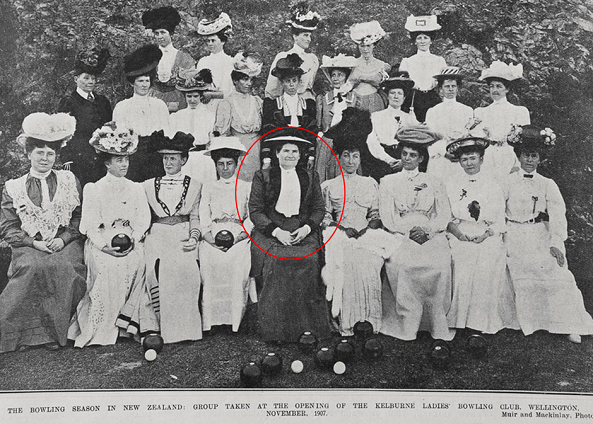
(Mary Hamerton, circled, the first President of the Kelburne Ladies' Bowling Club)
While bowls had been informally played by women for some years throughout New Zealand, Kelburne (in Wellington) was the first to establish a club solely focused on providing regular competition for female players. The initial meeting to form the club was held on 16 March 1905. Along with four others, Mary Hamerton formed part of the initial committee to formally establish the club, being elected the inaugural President, with one of her three daughters filling the role of Honorary Treasurer. The husbands of the Ladies Club presidential-suite held the equal roles for the men’s club. The ladies’ club originally played on Wednesday afternoons and resulted in similar clubs being formed throughout Wellington.
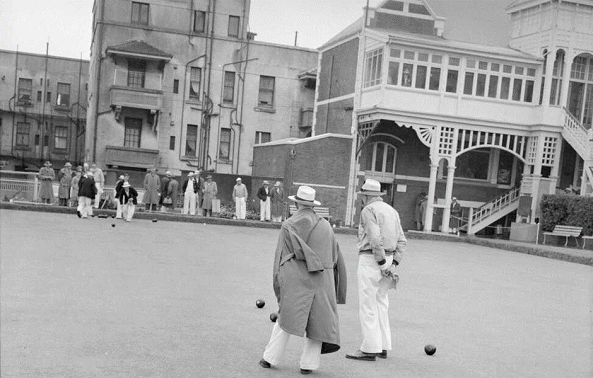
(The Kelburne Bowling Club was active from 1904 to 1968, located off Kelburne Parade)
Mary Agnes Hamerton (nee Parris) was the wife of Robert Chisenhall Hamerton. Robert was the Public Trustee and former President of the Victoria Bowling Club in Wellington. In 1903, he instigated the creation of the Kelburne Bowling (and Tennis) Club, becoming the inaugural President. Robert and Mary were married in 1859 and had nine children. The Hamerton family lived at 26 Central Terrace in Kelburne, a 10 minute stroll to the Bowling Club. Robert died in 1913 at the age of 75, while Mary lived to the venerable age of 96 and died in 1935. In 1968, Victoria University purchased the Kelburne Bowling Club following the club's decision to amalgamate with the Wellington Bowling Club and turned the land into a car-park. The Bowling Club turf was used to create a lawn for the University's "Weir House" nearby.
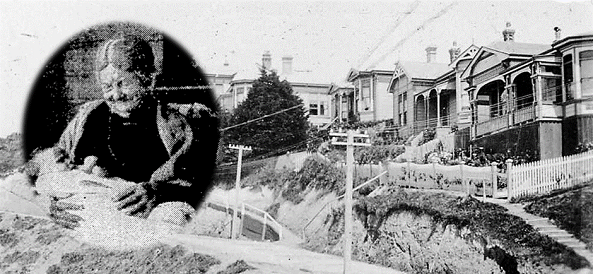
(Mary Hamerton's old-age was celebrated throughout New Zealand in the 1930's)
The Final Word ...
"The pleasure of a happy thought is much more attractive than worrying over things we can’t control, so give yourself that luxury." (Jacob King ,"Mental Toughness")